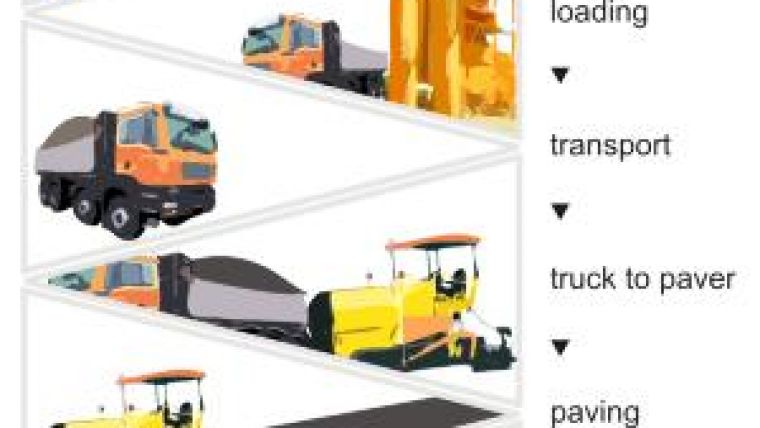Ready for Galileo
Multi-frequency, High-precision GNSS Receiver for Asphalt Fleet Machines
The full feature is online at http://member.gim-international.com/. Please subscribe for free using the Subscribe button in the left hand column.
Any sub-optimal operation within the asphalt construction chain will lead to a reduction in road quality, inevitably resulting in a shorter lifetime and hence higher costs. While satellite navigation is sometimes used for asphalt truck fleet management, it has so far not found any applications among compactors and pavers. The European GNSS Agency (GSA) has funded the research and development project, ‘Advanced Galileo navigation system for asphalt fleet machines’ (ASPHALT)1, with the ultimate objective of enabling better quality and more durable roads to be built. The distinct commitment is to bring the system to market within a few years, even though Galileo is not expected to be fully operational by that time.
90% of the paved roads of the European Union, which is equivalent to 5 million kilometres, have an asphalt surface. The quality and durability of a road depend on the continuous monitoring and control of parameters during the road construction process. A low-quality road will result in a shorter lifetime and hence higher road maintenance costs. Optimising the management of truck fleets, operation of the pavers and steering of the compactors are the key factors in road quality.
Asphalt road construction
Figure 1 shows the asphalt road construction process. The asphalt mixture is prepared at the asphalt plant and loaded onto trucks. The trucks transport the asphalt to the construction site and unload it to the paver. Several trucks might wait in front of the paver before they can unload. During the docking operation and during unloading, the paver tries to continue to pave the road. Finally, rollers ensure the right compaction of the asphalt material.
Each delay or inaccuracy in this process – such as inconstant speed, drops in temperature or variations in material quality during the paving process – will result in a reduction in road quality.
Analysing the different steps in turn, satellite navigation technology can support the asphalt construction in the following processes:
- mass flow control from asphalt plant to the paver
- asphalt temperature measurement while paving
- material thickness measurement and control
- evenness measurement and control
- asphalt compaction

Value staying current with geomatics?
Stay on the map with our expertly curated newsletters.
We provide educational insights, industry updates, and inspiring stories to help you learn, grow, and reach your full potential in your field. Don't miss out - subscribe today and ensure you're always informed, educated, and inspired.
Choose your newsletter(s)
























